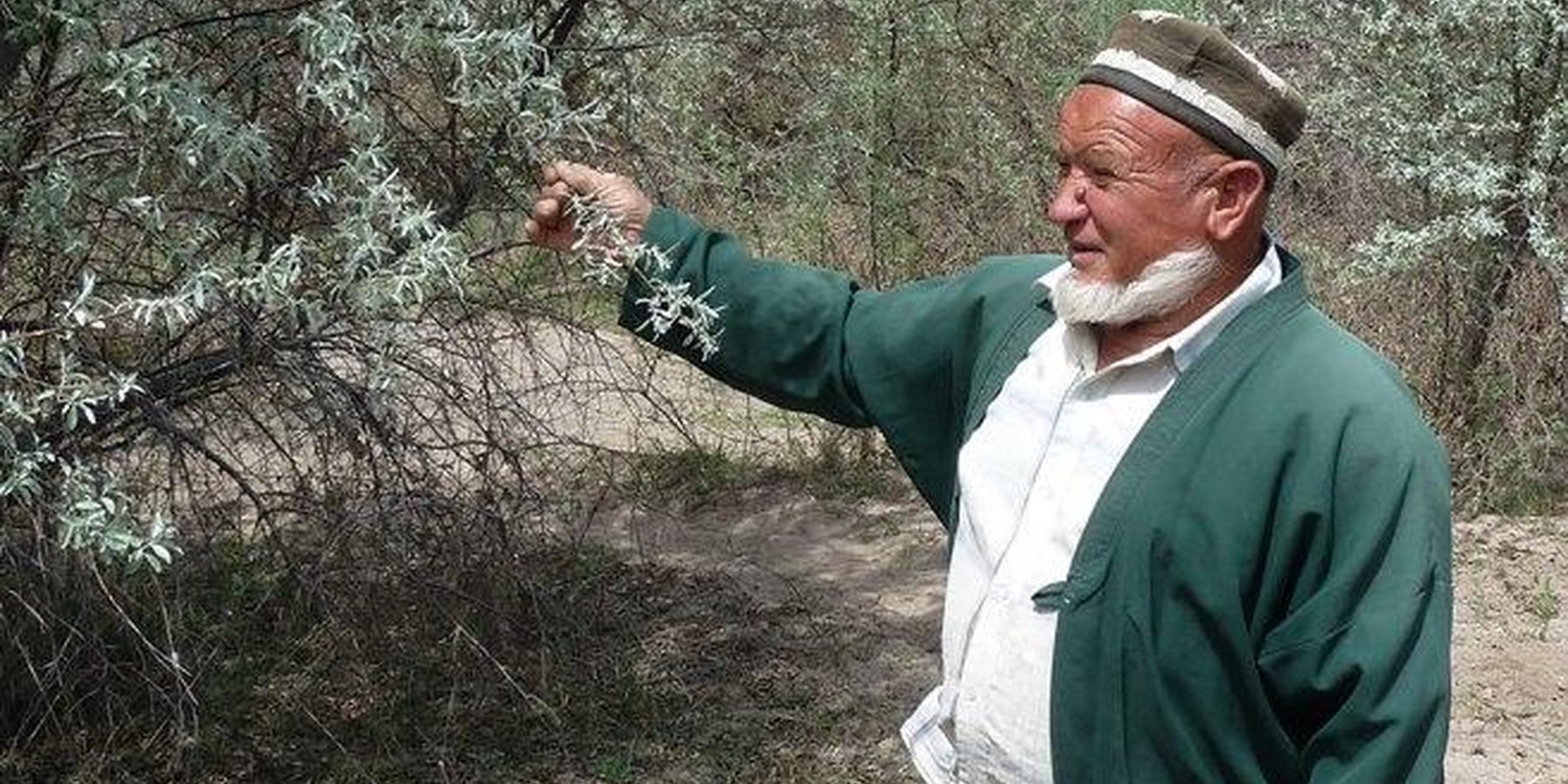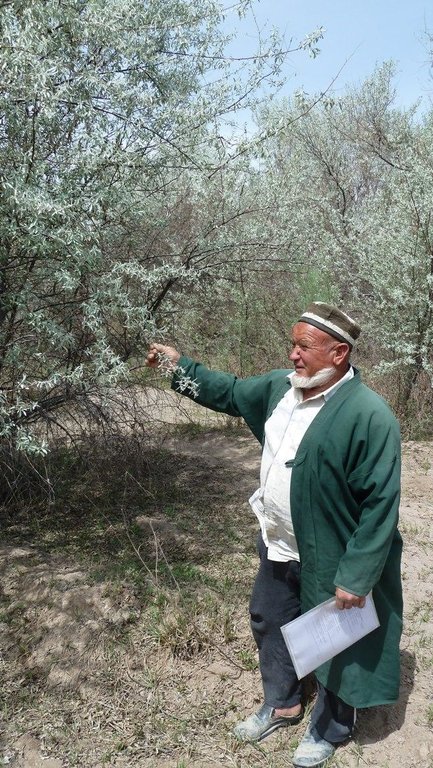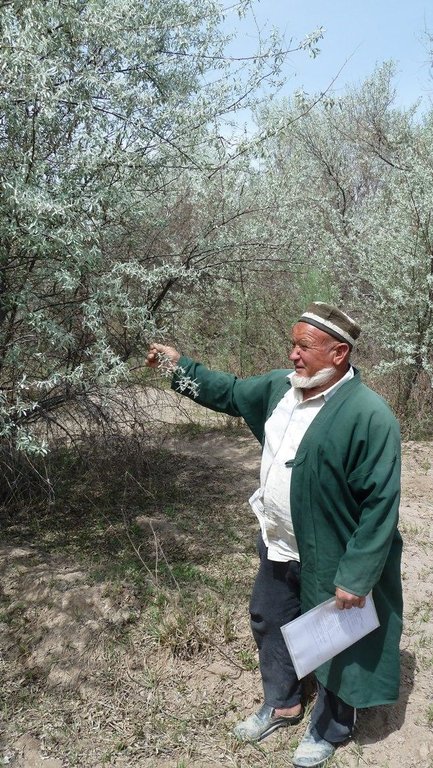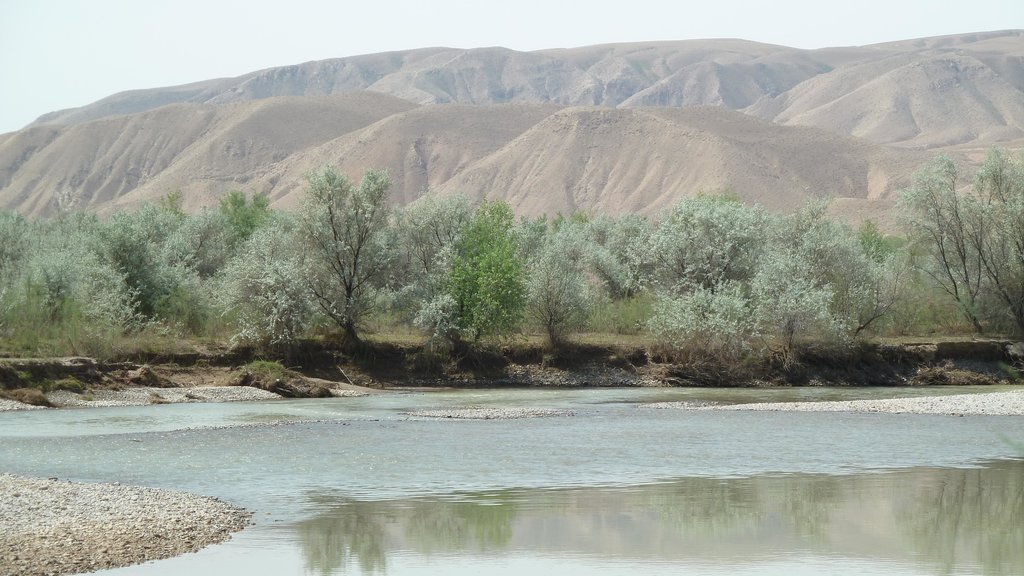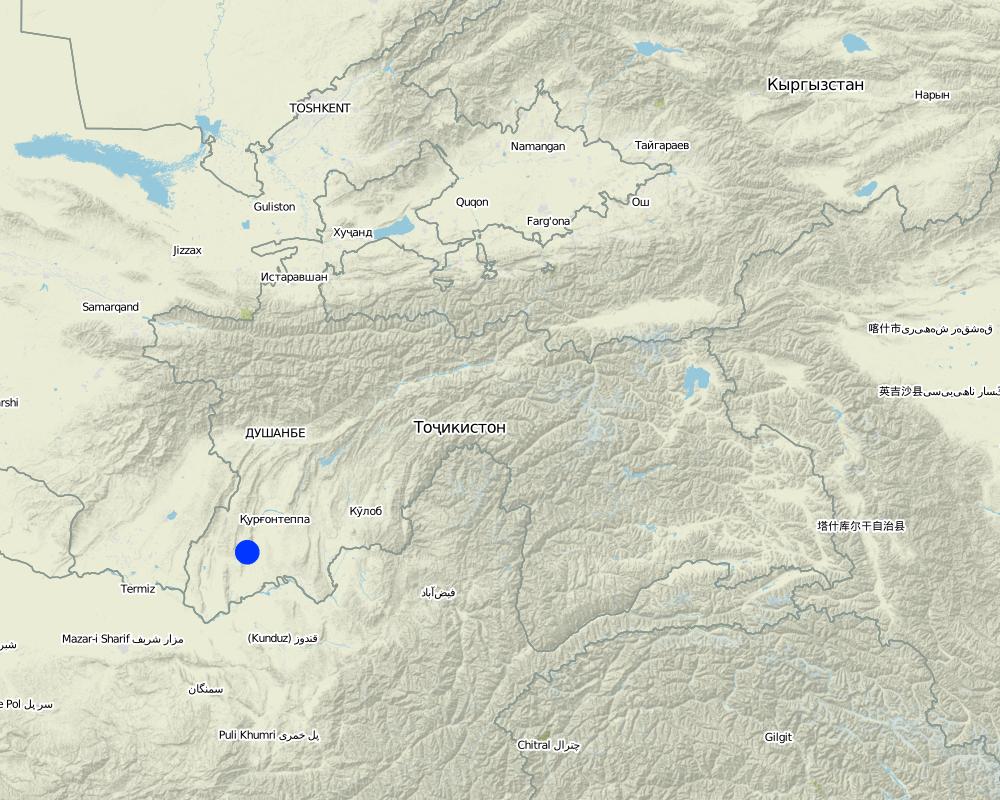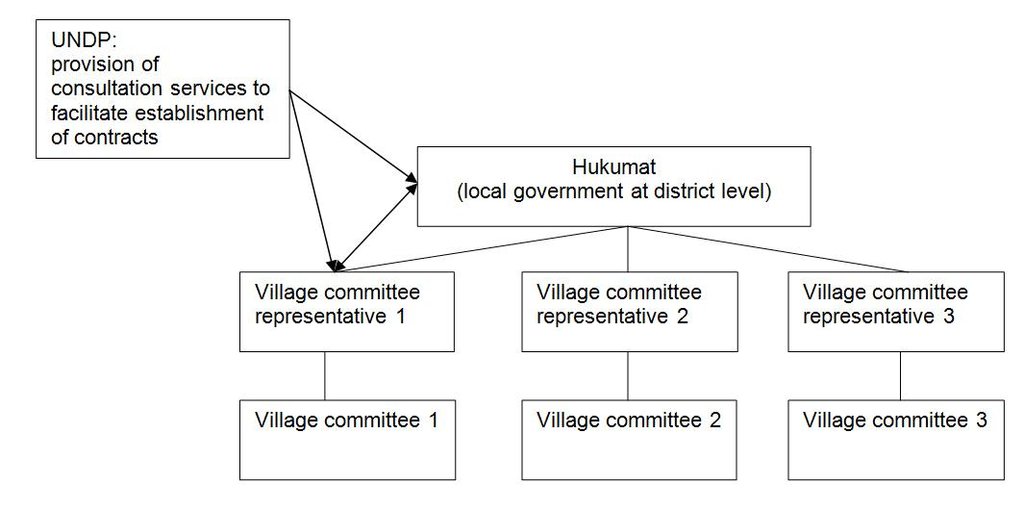Tugai forest management through village committees [塔吉克斯坦]
- 创建:
- 更新:
- 编制者: Firdavs Faizulloev
- 编辑者: –
- 审查者: David Streiff, Alexandra Gavilano
approaches_2441 - 塔吉克斯坦
查看章节
全部展开 全部收起1. 一般信息
1.2 参与方法评估和文件编制的资源人员和机构的联系方式
SLM专业人员:
SLM专业人员:
SLM专业人员:
Abdurakhimov Najmiddin
najmiddin.abdurakhimov@undp.org
National Expert on Forestry, UNDP
Shaartuz Area Office, 2 Ziyodaliev Street, Shaartuz
塔吉克斯坦
有助于对方法进行记录/评估的机构名称(如相关)
Central Asian Countries Initiative for Sustainable Land Management - Multicountry Capacity Building (CACILM - MCB) - 吉尔吉斯斯坦有助于对方法进行记录/评估的机构名称(如相关)
CDE Centre for Development and Environment (CDE Centre for Development and Environment) - 瑞士有助于对方法进行记录/评估的机构名称(如相关)
United Nations Development Program (United Nations Development Program) - 塔吉克斯坦1.3 关于使用通过WOCAT记录的数据的条件
(现场)数据是什么时候汇编的?:
13/04/2011
编制者和关键资源人员接受有关使用通过WOCAT记录数据的条件。:
是
2. SLM方法的描述
2.1 该方法的简要说明
The described approach facilitates the establishment of contracts between village committees and local authorities for decentralised management of Tugai forest areas on State Reserve Land.
2.2 该方法的详细说明
该方法的详细说明:
Aims / objectives: Tugai forests are riparian forest ecosystems situated in the continental, winter-cold deserts of Central Asia. These flood plain forests are severely threatened by overexploitation for fire wood and by overgrazing. The 253 ha of Tugai forest in Nuri Vakhsh Jamoat along the Vakhsh river in southern Tajikstan were suffering due to their de facto status as open access resources. The district environmental department that was supposed to monitor the forest was unable to effectively carry out this work. Therefore the UNDP project on “Demonstrating Local Responses to Combating Land Degradation and Improving Sustainable Land Management in SW Tajikistan” saw the protection of this Tugai forest as a priority and engaged with local land users to help protect the forest.
Methods: UNDP project representatives held discussions with forest users living in villages next to to the Tugai forests, regarding the establishment of community-based forest management institutions. UNDP proposed that these institutions enter into agreement with the Hukumat (local district-level government) to protect and exclusively use well defined forest areas on nearby State Reserve Land.
Stages of implementation: As a first step, UNDP obtained permission from the Hukumat to conduct sanitary felling of dry and infected trees, to help improve the forest structure under supervision of the Jamoat (local municipality-level government). The removed tree material was distributed to schools and hospitals as fire wood. Next, a leasehold agreement was formed between a representative of each of the three village committees and the Hukumat. These leasehold agreements covered a total of 126 ha out of 253 ha of Tugai forest existing in the area and they are valid for five years. The remaining forest area, which is not under an agreement, is not threatened as it is situated on an island in the middle of a strong stream that cannot be crossed. The committee has to pay about or 1.73 USD / ha of leased forest land as a tax to the district. The tax paid is collected from contributions by members of the villages who pay for each head of cattle that they send for grazing at a cost of 1 USD / head of cattle.
Role of stakeholders: The village committees are headed by one representative who is responsible for regulating access to the forest plots. The local Jamoat supervises the activities carried out by the village committees on their respective plots. UNDP provides consulting services for the process of establishing contracts between village committees and the local authorities and is carrying out regular monitoring of the forest management activities.
2.3 该方法的照片
2.5 采用该方法的国家/地区/地点
国家:
塔吉克斯坦
区域/州/省:
Khatlon
有关地点的进一步说明:
Nuri Vakhsh Jamoat
注释:
Total area of Tugai is 253 ha, of which 126 ha are under leasehold agreement (approach). The rest is still open access, but is not threatened as it is situated in the middle of a strong stream and cattle cannot access it to graze.
Map
×2.6 该方法的开始和终止日期
注明开始年份:
2009
终止年份(若不再采用该方法):
2011
2.7 方法的类型
- 基于项目/方案
2.8 该方法的主要目的/目标
The Approach focused mainly on SLM with other activities (regulation of access for herders)
The main aim of the approach is to help prevent the degradation of Tugai forest, and the disappeareance of this threatened ecosystem, while giving the local population the chance to manage and use it in a sustainable way.
The SLM Approach addressed the following problems: uncontrolled access and degradation of Tugai forest, overgrazing, cutting of trees, no firewood resources available
2.9 推动或妨碍实施本办法所适用的技术的条件
社会/文化/宗教规范和价值观
- 阻碍
lack of local level structures enabling collaboration between village organisations and Jamoat or Hukumat
Treatment through the SLM Approach: UNDP assistance and consulting to improve collaboration and enabling the establishment of leasehold agreements
机构设置
- 阻碍
no implementation of control and punishment measures regarding the overexploitation of Tugai forest
Treatment through the SLM Approach: clearly defined rights and responsibilities for forest users and village and local government institutions
法律框架(土地使用权、土地和水使用权)
- 启动
The existing land ownership, land use rights / water rights moderately helped the approach implementation: As the land is classified as State Reserve Land, and is under the control of the forestry department within the Hukumat, the establishment of an agreement between village organisations and the Hukumat was possible.
- 阻碍
no defined forest use or management rights and responsibilities
Treatment through the SLM Approach: user agreement between village committees and district administration
了解SLM,获得技术支持
- 阻碍
overgrazing and overexploitation of Tugai forest for firewood
Treatment through the SLM Approach: the forest leasehold agreement defines that no cutting of trees is allowed during the first 5 years, apart from sanitary felling, and grazing is limited to a certain number of cattle
3. 相关利益相关者的参与和角色
3.1 该方法涉及的利益相关者及其职责
- 当地土地使用者/当地社区
Representative of village committee and village committees
Village committees were all represented by men.
- SLM专家/农业顾问
UNDP consultants
International experts designed the broad structure/framework of the approach, but the specific agreements were designed by village representatives, Hukumat, and the UNDP consultant.
- 国家政府(规划者、决策者)
District administration
- 国际组织
UNDP
如果涉及多个利益相关者,请注明领导机构:
UNDP
3.2 当地土地使用者/当地社区参与该方法的不同阶段
| 当地土地使用者/当地社区的参与 | 指定参与人员并描述活动 | |
|---|---|---|
| 启动/动机 | 无 | Consultants from UNDP initiated the approach and started discussions with villages next to the forest |
| 计划 | 无 | |
| 实施 | 互动 | establishment of village committees, managing access for livestock herders |
| 监测/评估 | 无 | monthly monitoring through UNDP consultant |
| Research | 无 |
3.3 流程图(如可用)
具体说明:
UNDP facilitates the process of establishing contracts between village organisations and the Hukumat for decentralised forest management.
作者:
Julie Zähringer (Baumackerstr. 51)
3.4 有关SLM技术选择的决策
具体说明谁有权决定选择要实施的技术:
- 主要是土地使用者,由SLM专家提供支持
解释:
As technology in this case we understand the implementation of the forest leasehold agreements.
Decisions on the method of implementing the SLM Technology were made by mainly by SLM specialists with consultation of land users. As technology in this case we understand the implementation of the forest leasehold agreements.
4. 技术支持、能力建设和知识管理
4.1 能力建设/培训
是否为土地使用者/其他利益相关者提供培训?:
是
明确受训人员:
- 土地使用者
培训形式:
- 公开会议
涵盖的主题:
forest conservation, sustainable grazing management, sanitary cutting
4.2 咨询服务
土地使用者有权使用咨询服务吗?:
是
说明/注释:
Advisory service is quite adequate to ensure the continuation of land conservation activities; The forest leasehold agreements were established for a duration of 5 years. After this, the Hukumat should be in an adequate position to renew or adjust those agreements if necessary.
4.3 机构强化(组织发展)
是否通过这种方法建立或加强了机构?:
- 是,适度
具体说明机构的强化或建立程度:
- 本地
具体说明支持类型:
- 能力建设/培训
提供进一步细节:
Jamoat
4.4 监测和评估
监测和评估是该方法的一部分吗?:
是
注释:
bio-physical aspects were regular monitored by project staff through measurements; indicators: plant and bird species, number of cases connected with illegal cutting of trees
bio-physical aspects were regular monitored by project staff through observations; indicators: visual assessment of rehabilitation of grass, bushes and trees, number of wild animals and birds
There were no changes in the Approach as a result of monitoring and evaluation: None
There were no changes in the Technology as a result of monitoring and evaluation: None
4.5 研究
研究是该方法的一部分吗?
是
明确话题:
- 生态学
提供进一步的细节,并指出是谁做的研究:
Studies about presence of plant and bird species
5. 融资和外部物质支持
5.1 该方法中SLM组成部分的年度预算
注释(例如主要的资助来源/主要捐助者):
Approach costs were met by the following donors: international (UNDP): 100.0%
5.2 为土地使用者提供财政/物质支援
土地使用者是否获得实施该技术的财政/物质支持?:
否
5.3 对特定投入的补贴(包括劳动力)
- 农业
| 具体说明哪些投入得到了补贴 | 程度如何 | 对补贴做出具体说明 |
|---|---|---|
| 充分融资 | seeds for riverbank afforestation | |
- 其它
| 其它(具体说明) | 程度如何 | 对补贴做出具体说明 |
|---|---|---|
| costs associated with training and meetings | 充分融资 |
如果土地使用者的劳动力是一项重要的投入,那么是不是:
- 自愿
5.4 信用
是否根据SLM活动的方法给予信用值?:
否
5.5 其它激励或手段
是否有其他激励措施或工具用于促进SLM技术的实施?:
是
如果是,请具体说明:
Jamoat
6. 影响分析和结论性陈述
6.1 方法的影响
该方法是否帮助土地使用者实施和维护SLM技术?:
- 否
- 是,很少
- 是,中等
- 是,支持力度很大
protection of biodiversity, improved fodder availability
该方法是否有助于社会和经济弱势群体?:
- 否
- 是,很少
- 是,中等
- 是,支持力度很大
Did other land users / projects adopt the Approach?
- 否
- 是,很少
- 是,中等
- 是,支持力度很大
the experience has not yet been disseminated
Did the Approach lead to improved livelihoods / human well-being?
- 否
- 是,很少
- 是,中等
- 是,支持力度很大
improved pasture quality within the forest plots and high aesthetic value of the forest
Did the Approach help to alleviate poverty?
- 否
- 是,很少
- 是,中等
- 是,支持力度很大
6.2 土地使用者实施SLM的主要动机
- 规章制度(罚款)/执行
- 环境意识
- 美学改进
- well-being and livelihoods improvement
6.3 方法活动的可持续性
土地使用者能否维持通过该方法实施的措施(无外部支持的情况下)?:
- 是
若是,请说明如何维持:
The land users should now be in a position to renew contracts with the Hukumat.
6.4 该方法的长处/优点
| 土地使用者眼中的长处/优势/机会 |
|---|
| Protection of plant and animal diversity |
| Increasing the capacity of the community on legal issues |
| Aesthetic value of the beauty of this landscape - quote from land user responsible for a 41 ha forest plot 'Every morning when I open the window and I see the beautiful landscape of the Tugai forest I feel happy' |
| 编制者或其他关键资源人员认为的长处/优势/机会 |
|---|
|
Protection of a highly endangered ecosystem, while allowing for improvement of grazing for local herders |
6.5 该方法的弱点/缺点以及克服它们的方法
| 土地使用者认为的弱点/缺点/风险 | 如何克服它们? |
|---|---|
| no tenure security as the government could sell off the land at any time | issue land user certificates |
7. 参考和链接
7.1 方法/信息来源
- 实地考察、实地调查
- 与土地使用者的访谈
链接和模块
全部展开 全部收起链接
无链接
模块
无模块


